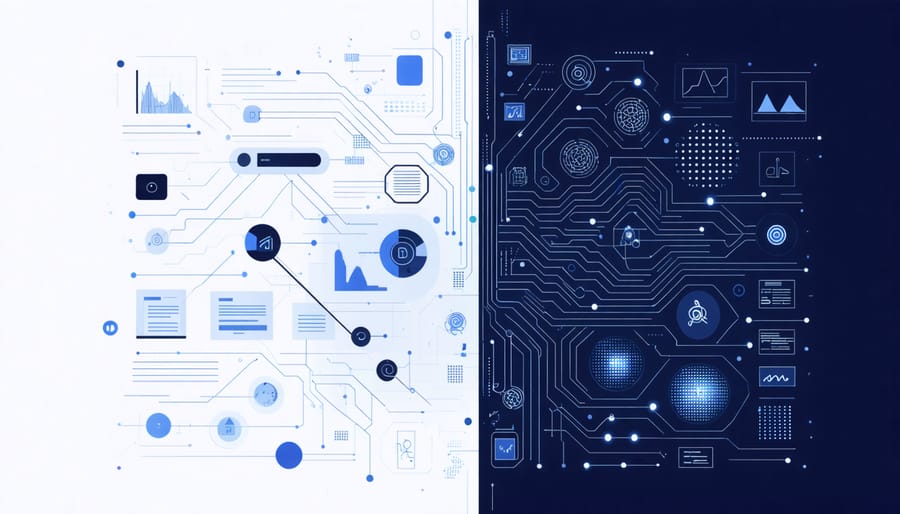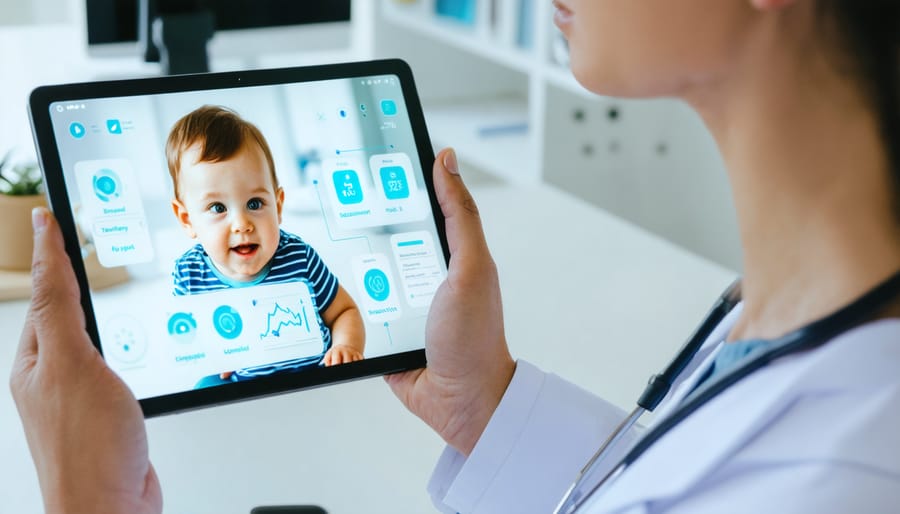Imagine sitting across from your child’s healthcare provider as they conduct a brief but powerful conversation that could unlock vital insights into your child’s mental well-being. The Mini Diagnostic Interview (MDI) revolutionizes how we understand and support children’s mental health, offering a streamlined approach that combines clinical expertise with compassionate care. This innovative assessment tool, typically lasting 15-30 minutes, helps professionals identify potential concerns while keeping young patients comfortable and engaged.
In today’s fast-paced digital age, where mental health awareness is more crucial than ever, the MDI stands out as a breakthrough in early intervention and support. Parents and healthcare providers alike appreciate its efficiency without sacrificing thoroughness, making it an invaluable first step in understanding a child’s emotional and behavioral needs.
As both a diagnostic tool and a bridge to meaningful conversation, the MDI transforms what could be an intimidating experience into an opportunity for connection and understanding. With carefully crafted questions and a structured yet flexible format, it opens doors to better mental health support while respecting each child’s unique story and circumstances.
What Is a Mini Diagnostic Interview?

Key Features and Benefits
Mini diagnostic interviews offer several valuable benefits that make them an essential tool in children’s mental health assessment. These brief sessions typically last 15-30 minutes, making them less overwhelming for children while still providing meaningful insights for parents and healthcare providers.
One of the key advantages is their child-friendly approach. The short duration helps maintain young patients’ attention and reduces anxiety commonly associated with longer evaluations. The structured format ensures consistent assessment across different cases while allowing flexibility to address individual needs.
These interviews are particularly effective at identifying immediate concerns and creating a foundation for more detailed evaluation when needed. Parents appreciate the quick yet thorough nature of these sessions, which often include engaging elements like simple games or conversational activities to help children feel more comfortable.
Healthcare providers benefit from the standardized approach, which helps them gather essential information efficiently. The format allows for easy documentation and tracking of progress over time. Many modern mini diagnostic interviews also incorporate digital tools, making it easier to record and analyze responses while maintaining a personal connection with the child.
Importantly, these brief assessments serve as an excellent starting point for early intervention, helping families access appropriate support sooner rather than later.
How AI Enhances Mini Diagnostic Interviews
AI-Powered Analysis
Modern AI technology brings a remarkable level of precision to mini diagnostic interviews by analyzing responses in ways that complement human expertise. Similar to other brain-based treatment approaches, AI systems process information through sophisticated algorithms that can detect subtle patterns in children’s responses, behaviors, and speech patterns.
The AI component works by comparing responses to extensive databases of child development information, helping identify potential areas of concern that might not be immediately apparent. For example, the system might notice patterns in how a child describes their daily activities, their emotional responses, or their social interactions.
What makes this technology particularly helpful is its ability to maintain consistency across multiple sessions and provide objective data-driven insights. The AI doesn’t replace the warmth and understanding of human professionals but rather enhances their ability to make informed decisions about a child’s well-being.
Parents can feel reassured knowing that this technology adds an extra layer of accuracy to the assessment process while maintaining the personal touch that’s so important in children’s mental health care.

Real-Time Support
During mini diagnostic interviews, healthcare providers receive valuable real-time support from AI technology, making the assessment process more thorough and efficient. The AI system acts like a knowledgeable assistant, offering prompts and suggestions based on the child’s responses and behaviors. This integration with advanced therapeutic technologies helps ensure that no important diagnostic criteria are overlooked.
For example, if a child mentions feeling worried about school, the AI might suggest exploring specific aspects of school anxiety or recommend additional questions about social interactions. The system can also flag potential areas of concern that might not be immediately obvious, helping professionals make more informed decisions about treatment paths.
Dr. Sarah Chen, a child psychiatrist, shares, “The AI support helps us maintain a natural conversation flow while ensuring we gather all necessary information. It’s like having a second set of expert eyes and ears during the interview.” This technological assistance particularly benefits newer practitioners, providing them with confidence and guidance while maintaining the human connection that’s essential in mental health care.

What Parents Should Expect
During a mini diagnostic interview, you and your child will meet with a qualified mental health professional in a comfortable, child-friendly environment. The session typically lasts between 20 to 30 minutes, making it less overwhelming for children compared to traditional lengthy assessments.
Your child’s interviewer will engage them in casual conversation and age-appropriate activities while gathering important behavioral and emotional information. You might notice them using a tablet or computer to record responses and observations, which helps make the process more efficient and accurate.
As a parent, you’ll be present throughout the interview, which can help your child feel more secure. The interviewer will ask you questions about your child’s daily routines, behaviors at home and school, and any concerns you may have. They might also request examples of specific situations that worry you.
The professional will observe how your child interacts, communicates, and responds to various questions and activities. They may use playful elements or visual aids to keep younger children engaged. For older children and teenagers, the conversation might be more direct but still maintains a comfortable, non-threatening atmosphere.
After the interview, you’ll receive immediate preliminary feedback about your child’s assessment. The interviewer will explain their observations in clear, understandable terms and discuss potential next steps. If needed, they might recommend additional assessments or provide referrals to specialists.
Remember, this brief format isn’t meant to replace comprehensive evaluations but serves as an efficient first step in understanding your child’s needs. Many parents find this shorter format less stressful for both themselves and their children while still providing valuable insights.
The mini diagnostic interview represents a significant step forward in making mental health screening more accessible and less intimidating for children and families. By catching potential concerns early through these brief but comprehensive assessments, parents can help their children access modern treatment options before challenges become more serious.
Remember that being proactive about your child’s mental health is just as important as staying on top of their physical health. These quick screening tools help remove barriers to assessment while providing valuable insights that can guide treatment and support. Many parents report feeling relieved after completing the interview, as it helps put words to their concerns and creates a clear path forward.
If you notice changes in your child’s mood, behavior, or daily functioning, don’t hesitate to reach out to healthcare providers about scheduling a mini diagnostic interview. Early intervention often leads to better outcomes, and these screenings are designed to be child-friendly and parent-supportive. You know your child best, and your observations combined with professional screening tools create the strongest foundation for supporting their mental wellness.
Take that first step today – your child’s emotional wellbeing is worth it. With these modern screening tools, getting help has never been more straightforward or accessible.




